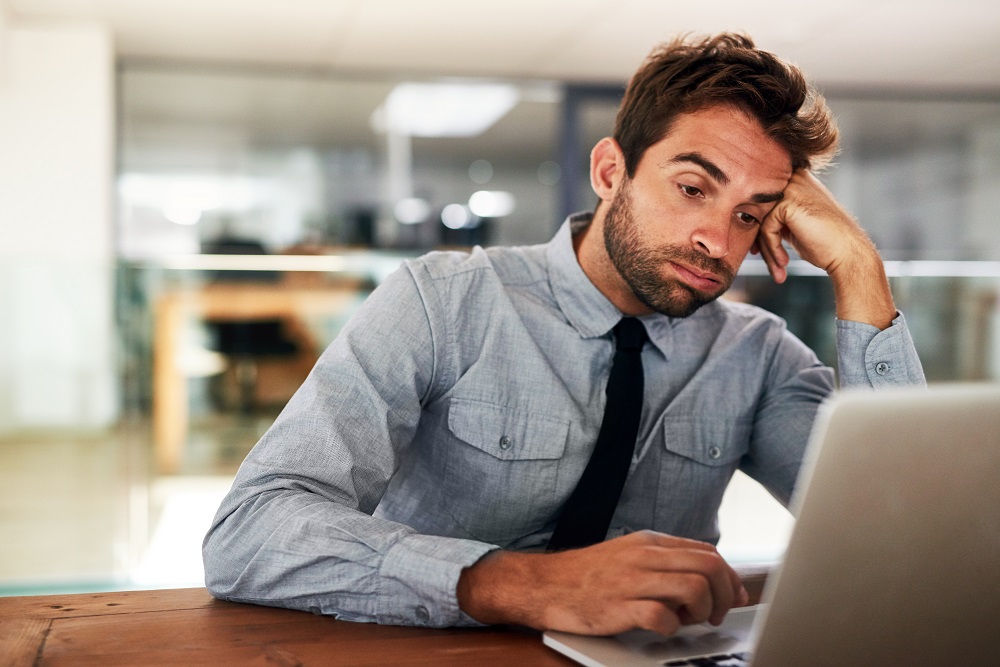
We are living amidst a global pandemic that has disrupted the livelihoods and well-being of many workers across the world. Not only were there high fatalities in many countries, but it also greatly affected salaries, most industries, and the world economy.
Moreover, the back-to-back lockdowns imposed in some countries also affected work-life balance. A survey study conducted among German and Swiss employees even found that COVID-19 had worsened most employees' work and private life.
Countless workers are becoming physically, mentally, and emotionally tired as they juggle between taking care of family members, changing workplace environments, managing work-from-home demands, and coping with the pandemic.
While certain sectors and industries are starting to recover, there's still fear and uncertainty surrounding COVID-19. We don't yet know how we'll be affected, how long it'll stay, or how severe things could become.
At the same time, the stress of dealing with work during the height of COVID-19 has increased the number of workers experiencing job burnout. As this can harm physical and emotional health, it's important to understand if you're suffering from this condition, and how to pull yourself through.

Burnout can be very difficult to detect as people often mistake it for being tired or stressed. The meaning itself has been debated for decades since the term was introduced in the 1970s.
Nonetheless, in 2019, the World Health Organisation (WHO) defined burnout as “a syndrome conceptualised as resulting from chronic workplace stress that has not been successfully managed”.
WHO did not classify burnout as a medical condition, but instead as an occupational phenomenon that is characterised by three dimensions:
Burnout can have a negative impact on your mental, physical, and emotional health. The symptoms usually appear when you're overworked and feel as though you can no longer keep up with the demands of your job.
However, don't confuse the feeling of burnout with work stress. People who are stressed out might be struggling to deal with pressures at work, but they can still believe that they would feel much better if their priorities are in order.
Burnout, on the other hand, is about feeling empty, emotionally drained, and can no longer cope with the demands at work or even life. The table below highlights the main differences between work stress and burnout:

Burnout can happen to anyone, at any stage of their working lives. If you’re still wondering whether or not you are experiencing burnout, these are the 11 red flags you should look out for:

This is way beyond just feeling tired. It can be emotional, mental, or even physical exhaustion and the feeling just doesn’t go away. So, if you have to literally drag yourself out of bed and go to work, you could be on the verge of burnout.
You are no longer excited about the work you’re doing. Nothing could interest you anymore, not even the activities you used to enjoy. If you can no longer feel enthused and encouraged, you should not only worry about burnout but also depression.
Losing the ability to focus and understand what is expected of you. You may notice that you’re getting forgetful, unsure of how to start your work, and having trouble concentrating.
You may not be able to perform properly in your daily activities if you are overwhelmed and drained. Try comparing your current job performance to past years' performance to identify whether you have been suffering from burnout.
No matter what you do or where you are, negative thoughts and emotions keep lingering around you. You might also find yourself being more negative than usual. It is crucial to realise when you’ve developed unusual pessimistic and cynical personalities.
This is when you find yourself always arguing with other people, or maybe stop talking less to family and co-workers. The conflict could have taken place both at work and at home. Pay attention to when you begin to lose interest in others, particularly those who are close to you.
Some people who are burnt out will engage in harmful coping mechanisms such as binge drinking, smoking, being excessively sedentary, consuming more junk food, barely eating enough, or sleeping less.
Poor work-life balance is when you find yourself working longer hours, enduring more responsibilities at work, and having more obligations at home. This could lead to exhaustion, fatigue, and ultimately burnout.
You are always unhappy and feeling dissatisfied with your job, and even personal life. At work, this could lead you to experience a lack of interest in your tasks and company.
You could be burning out if you are troubled by unexplained headaches, stomach or digestive problems, or other physical ailments. Burnout has also been linked to several physical issues such as dyspnoea (shortness of breath), insomnia, chest pain, and arrhythmia (irregular heartbeat).

You may believe that what you're doing no longer matters, and you may be disillusioned with just about everything. This means you are disappointed because the work you’re doing is not as good as you expected or hoped it would be.
Job burnout can be caused by a variety of factors, which vary from one person to another. However, there are several common factors that can be identified as causes of burnout, including:
As the signs differ between individuals (as they do with any illness), it's vital to comprehend the stages of burnout before taking steps to prevent it. The following stages are the ones that are typically observed:

High job satisfaction and enthusiasm, even though you may have begun to experience predicted stresses.
Some days are more challenging than others, and your optimism is slowly fading.
A significant shift in your stress levels, from motivation to enduring stress on a regular basis.
Signs and symptoms become critical are you are burning out. It’s often impossible to carry on as normal at this stage.
The symptoms of burnout are so embedded in your life that you are more likely to have serious chronic mental, physical, and/or emotional problems.
Job burnout may be caused by the following factors:
If left untreated, burnout can have significant implications such as chronic illnesses, extreme irritability, and excessive stress. The feeling of burnout certainly seems severe enough that you must be wondering if you'll ever be able to recover from it.
Before anything else, you must first acknowledge that you are experiencing burnout, and that you want to improve yourself to feel better. Only then you can try to recover yourself and start enjoying your job again. These are some of the best ways for you to bounce back from burnout:
Even though it is common for many employees to experience workplace burnout, it doesn't always have to be that way. Ultimately, the solution boils down to one thing - YOU. Make your health a priority, recognise your involvement in burnout, and get help if you require it.
Your mental health is far more important, and you need to know when it is time to take a step back and re-energise yourself. It's crucial to keep in mind that you can always do your best to prevent or manage workplace burnout, while also having a satisfying and rewarding job.